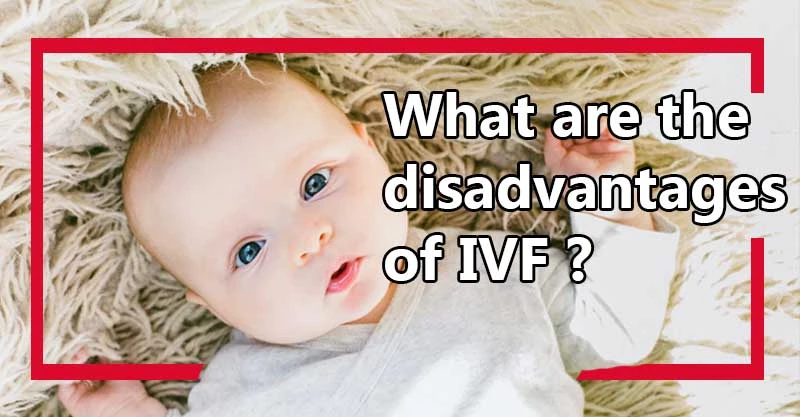Ivf babies disadvantages

Introduction
ivf babies disadvantages. In vitro fertilization (IVF) has revolutionized reproductive medicine, enabling countless couples to fulfill their dreams of parenthood. However, it’s essential to be aware of the potential disadvantages and challenges associated with IVF-conceived children. In this article, we’ll explore some of the drawbacks of IVF babies, including health risks, financial burdens, emotional stress, ethical concerns, and more. It’s crucial to make informed decisions when considering IVF as a means of having a child.
Table of Contents:
- Introduction
- Briefly introduce IVF and its purpose.
- The Advantages of IVF
- Mention the positive outcomes of IVF, such as helping couples with fertility issues conceive.
- Disadvantages of IVF Babies
- Explore the potential disadvantages and considerations of children born through IVF.
- 1. Health Risks
- Discuss any health-related concerns that may be associated with IVF babies, including the possibility of preterm birth or low birth weight.
- 2. Emotional and Psychological Challenges
- Explain how the IVF journey can be emotionally and psychologically challenging for parents and potentially impact children.
- 3. Financial Costs
- Address the financial burdens associated with IVF treatment and the long-term costs of raising a child.
- 4. Ethical Considerations
- Touch upon ethical dilemmas related to IVF, such as the disposition of unused embryos and selective embryo reduction.
- 5. Potential for Multiple Pregnancies
- Discuss the increased likelihood of multiple pregnancies with IVF and the challenges they may present.
- 6. Long-Term Health Outcomes
- Mention any ongoing research on the long-term health outcomes of IVF-conceived children.
- 7. Societal Stigma
- Address the societal stigmas or misconceptions that IVF families may face.
- Conclusion
- Sum up the disadvantages and considerations of IVF babies, emphasizing the importance of informed decision-making.
Disadvantages and Considerations of IVF Babies
In vitro fertilization (IVF) has revolutionized the field of reproductive medicine, offering hope to couples struggling with infertility. However, like any medical procedure, IVF comes with its own set of disadvantages and considerations, particularly concerning the children born through this process. In this comprehensive guide, we’ll explore the potential downsides and challenges associated with IVF babies.
1. Health Risks
ivf babies disadvantages. One of the primary concerns associated with IVF babies is the potential for health risks. Research suggests that IVF-conceived children may have a slightly higher risk of certain health issues, including preterm birth and low birth weight. These factors can increase the likelihood of neonatal complications.
2. Emotional and Psychological Challenges ivf babies disadvantages
Ivf babies disadvantages. The journey of IVF can be emotionally and psychologically taxing for couples. The stress, anxiety, and disappointments that often accompany fertility treatments can impact the emotional well-being of both parents and potentially affect the child’s upbringing.
3. Financial Costs
IVF treatments are not only emotionally challenging but also financially burdensome. The cost of multiple IVF cycles can be substantial, and ongoing expenses related to raising a child can strain a family’s finances.
4. Ethical Considerations
ivf babies disadvantages. Ethical dilemmas are another aspect to consider. IVF raises questions about the disposition of unused embryos, which may be stored for future use, donated, or discarded. ivf babies disadvantages. Additionally, the practice of selective embryo reduction, when multiple embryos are implanted, can be ethically complex.
5. Potential for Multiple Pregnancies
IVF procedures often result in multiple embryos being implanted to increase the chances of success. While this can lead to successful pregnancies, it also carries the risk of multiple pregnancies, which are associated with higher medical risks and logistical challenges. ivf babies disadvantages.
6. Long-Term Health Outcomes
Research on the long-term health outcomes of IVF-conceived children is ongoing. While there is generally no evidence of significant long-term health problems, continued research is essential to fully understand any potential health implications.
7. Societal Stigma
Lastly, some IVF families may face societal stigmas or misconceptions about the process. This can include misunderstandings about why couples choose IVF or judgments about the validity of IVF-conceived children.
Conclusion
In conclusion, while IVF offers hope and success to many couples struggling with infertility, it’s important to be aware of the potential disadvantages and considerations associated with IVF babies. Informed decision-making, thorough discussions with healthcare providers, and support from healthcare professionals can help navigate these challenges and ensure the best possible outcome for both parents and children.
Please note that this article provides a balanced overview of potential disadvantages and considerations related to IVF babies and is intended for informational purposes. It’s important for individuals and couples considering IVF to consult with medical professionals for personalized guidance and support.
